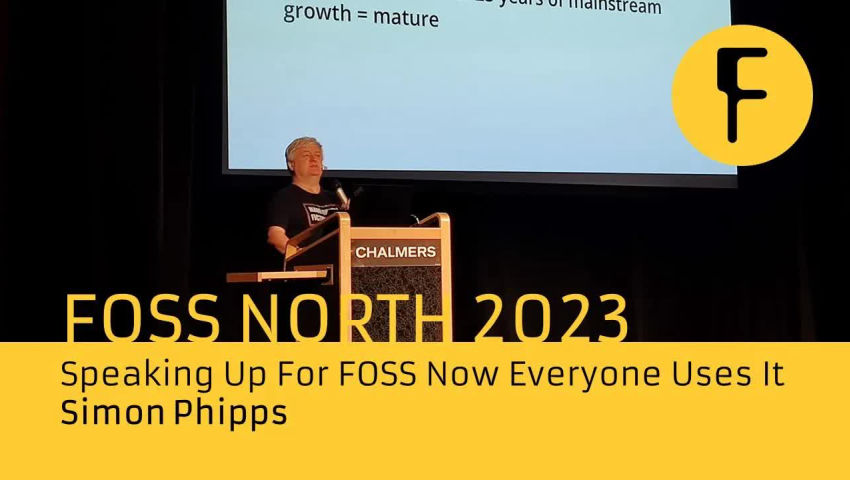At 40 years old, FOSS has become a full citizen in modern society. By popularising and catalysing the pre-existing concepts from the free software movement, open source has moved to the heart of the connected technology revolution over the last 25 years. In Europe, it now drives nearly 100 Billion Euros of GDP. Unsurprisingly, it is now the focus of much political attention from all directions - including regulators and detractors. Today everyone wants to be FOSS - including many who really don’t but want the cachet.
In 2022, the mounting wave broke and legislation affecting our movement cascaded into view in the USA and Europe. In Europe, the DSA, Data Act, AI Act, CRA, PLD, and several more major legislative works emerged from the Digital Agenda. Despite its apparent awareness of open source, this legislation appeared ill-suited for the reality of our communities. Why is that? Where do standards come into this? Where is this heading?
*Simon Phipps is currently director of standards and EU policy for the Open Source Initiative, where he was previously a member of the board of directors and board President. He has also served as a director at The Document Foundation, the UK’s Open Rights Group and other charities and non-profits. Prior to that, he ran one of the first OSPOs at Sun Microsystems, was one of the founders of IBM’s Java business, worked on video conference software and standards at IBM and was involved with workstation and networking software at Unisys/Burroughs. A European rendered stateless by British politics, he lives in the UK. *


